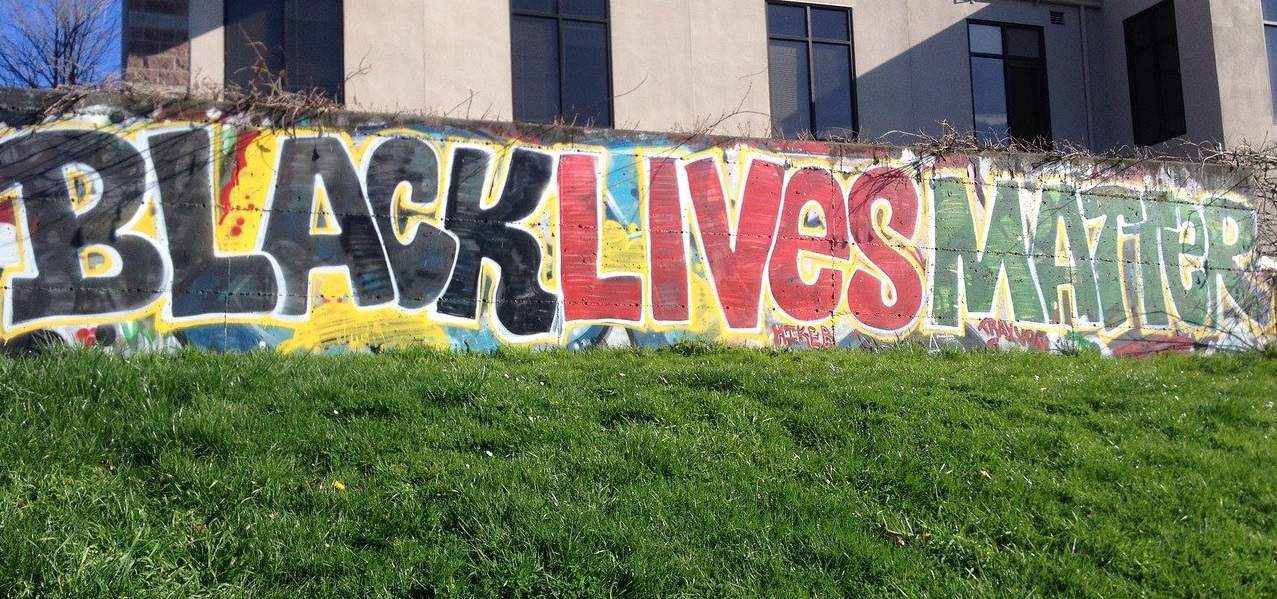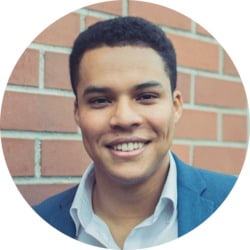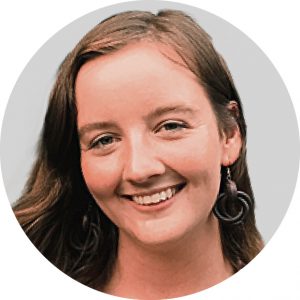
“Not a fleeting protest”
Nancy Hoque, USA. “The recent events of racism and senseless loss of black lives has been a difficult reminder of the injustices that exist in our society. These tragedies are only the most recent of what has been the burden of the Black community in the United States for a very long time.
While this group of Young Global Changers reflects on racism and systematic discrimination in the context of our own backgrounds, we submit that the time is ours, to undo the damage and look for ways to reform the system. One that fosters and promotes equality and opportunity for justice.
Immigrants to the United States who form a cornerstone of iconic innovation, was possible due to the Civil Rights work done by Dr. Martin Luther King and the passage of the Immigration and Naturalization Act of 1965. The roots of the Black Lives matter movement is a collective history of immigrants of color in the United States. Hence it should be seen as a part of our shared past and not isolated. Not a fleeting protest, but an indicator to step out of our comfort zones and be change agents to lead and learn.
In no way is this meant to diminish the importance, prominence, or momentum of the Black Lives Matter (BLM) movement, but rather encourage that we elevate the discussion to policy makers and beyond national borders. These questions – while relevant differently and in unique ways depending on the national settings – are relevant too on an international and global level. International leadership forums like the G20 need to find ways to address racism and systematic discrimination that prevails today – even in the (economically) most advanced countries of our world.
Please find below perspectives from Young Global Changers in Germany, Brazil and Australia, where in the midst of the Black Lives Matter movement, they reflect on experiences from their countries.”

Nancy, a 2018 Young Global Changer and Young Global Changers Ambassador, is a Go-to-Market Strategist at Adobe and co-founder of “The Pursuit, Global Women for Change”. A former solutions architect designing communications for the U.S. military, and founder of a global Muslim headscarf startup, she is a woman in leadership advocate.
“We are the biggest black country outside of Africa.”
Eduarda Zoghbi, Brazil. “Brazil is known for its diversity and acceptance towards all cultures and ethnicities. For decades, internationally recognized sociologist Gilberto Freyre claimed that Brazil was a racial democracy: a non-racist, harmonious multiracial society. However, the racial democracy myth was contested by Florestan Fernandes, who said capitalism reinforces economic disparities between black and white.
We were one of the last countries to abolish slavery in 1888, a historical process that did not provide any means of social or economic integration of slaves in our society. Nowadays, we are the biggest black country outside of Africa, with 55% of our population being black. In addition, 75% of the poorest in the country are black, facing more challenges to find work and earning 31% less than whites. I hope the BLM movement inspires substantive change and serves as a call to action for countries like my own to promote racial equality policies and reduce such stark divides.”

Eduarda, a 2018 Young Global Changer and Young Global Changers Ambassador, is a political scientist and current MPA Candidate at Columbia University. She works for the Center on Global Energy Policy supporting the Women in Energy program and at the Institute of Latin American Studies to develop grant proposals towards gender equity.
“Colorful leaders are a rare sight in Europe´s largest economy.”
Sebastian Woller, Germany. “From my personal experience, I would argue that racist experiences are the exception, not the rule in Germany. That being said, the Black Lives Matter movement has caused me to reflect on my country twofold.
First, it has caused me to reflect on the progress my country has already made. Germany prides itself on its rich cultural history including the likes of Beethoven and Goethe. But it was also shaped by the horrors of National Socialism, the Holocaust and by the devastation caused by two World Wars. As a result of my nation`s shameful past, respect, tolerance, and dignity have come to be non-negotiable for most Germans today. In contrast to the US, the foundations of the Germany we know today do not rest on a history of slavery, segregation and continuous battles for civil rights. Most Germans today (just like the majority of Americans) do not take racism (sexism or other forms of discrimination) lightly. And, I’m grateful for that.
Second, it has caused me to reflect on the progress my country is yet to make. While every fourth person in Germany today has an immigrant background, discrimination against people based on their ethnic origin is increasing. The black population is estimated at more than one million people. Despite this, colorful leaders are a rare sight in Europe’s largest economy. The clarion calls suggest that now is the time to negotiate leadership opportunities for people of color. More than ever, colorful leadership needs to be nurtured and championed here in Germany. Personally, 99% percent of German leaders I have met aim at making respect, tolerance and dignity their guiding principle. However, in contrast to the US, Germany is yet to demonstrate the dynamics of her new cohesion by electing a leader of color or with an immigrant background.”

Sebastian, a 2018 Young Global Changer, holds a B.Sc. in International Management from the International School of Management. He is a management professional with experience in banking, consulting, the public sector and the automotive industry. Sebastian has been a speaker at different international conferences and is involved in various change projects.
“Politicians need to consistently listen, unlearn, relearn and dismantle the systems which contribute to racism in our society.”
Brianna Kerr, Australia. “When George Floyd was brutally killed on May 25, we were celebrating ‘National Reconciliation Week’ in Australia – a time set aside each year to engage all Australians with Aboriginal history and culture and to explore how each of us can contribute to achieving reconciliation.
If you aren’t familiar with Australian history, we were a country born on the genocide of black lives and today, systemic racism still exists. To draw some parallels between Australia and the United States: although Aboriginal and Torres Strait Islander adults only make up around 3% of the national population, they constitute about 30% of the national prison population. This means, we lock up First Nations People at four times the rate of black Americans and, in the youth detention system, 50% of all detainees are Indigenous. I urge you to read about these startling statistics and more at AnTAR’s website.
What the past few weeks have made me reflect on is this: reconciliation and equality is far from being achieved in Australia and one week a year is not going to change anything.
Non-Indigenous Australians and Australian politicians need to consistently listen, unlearn, relearn and dismantle the systems that contribute to racism in our society. We need to work at it every day. Reflecting on and acknowledging your own biases, lobbying your local government, donating to Indigenous led organisations, buying from Aboriginal businesses and boycotting events like Australia Day are good first steps to becoming a better ally.”

Brianna, a 2019 Young Global Changer and Young Global Changers Ambassador,is a social entrepreneur and law student. Her passion for the profit-purpose model manifested in 2018 when she joined her university colleagues in building Kua, a social enterprise using coffee and new technologies to challenge how businesses think about consumption. She is currently studying a Master of Human Rights at the University of Sydney.
What can the G20 do? What can we do?
It is clear from these reflections, many G20 countries are experiencing prolific racial injustice. Hence, the G20 must play a role in pushing the agenda on social cohesion and making world leaders sit up and acknowledge they have the power to evoke change and create policies which dismantle systematic discrimination.
This power does not rest only amongst the G20 governments, but amongst Think Tanks, Young Global Changers, and change agents within society to continuously and relentlessly push for equality and bring the discussion of Black Lives Matter to the forefront, as allies.
An Article by Sebastian Woller, Eduarda Zoghbi, Brianna Kerr, Nancy Hoque
___
The views and opinions expressed in this article are those of the authors and do not necessarily reflect the views of the Global Solutions Initiative.
